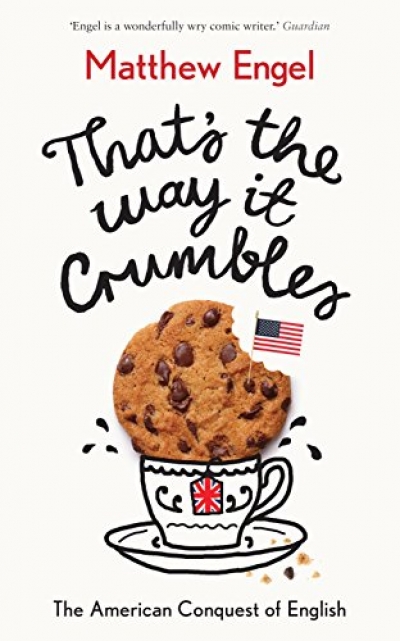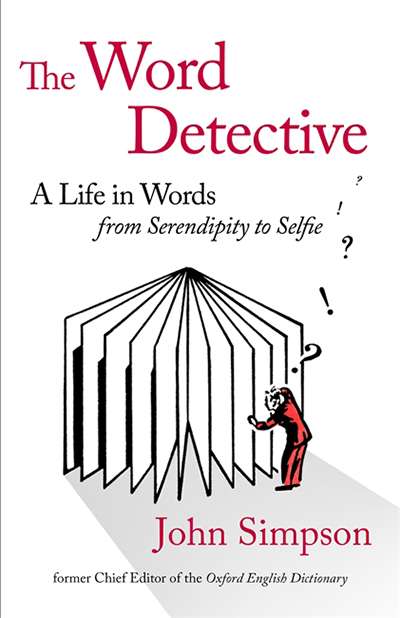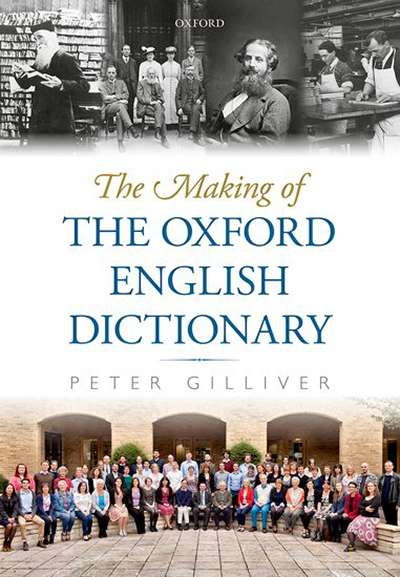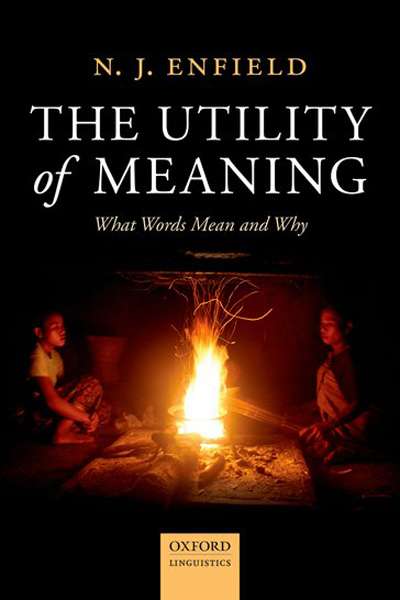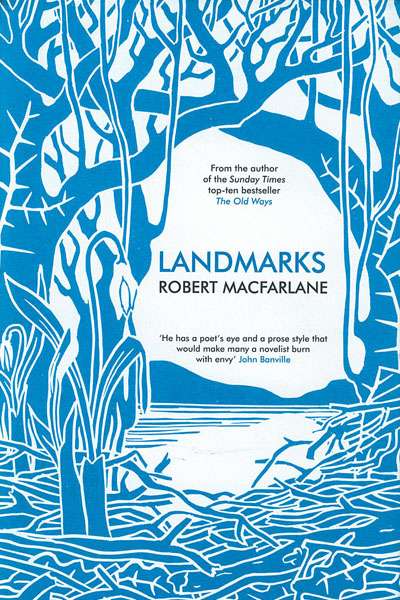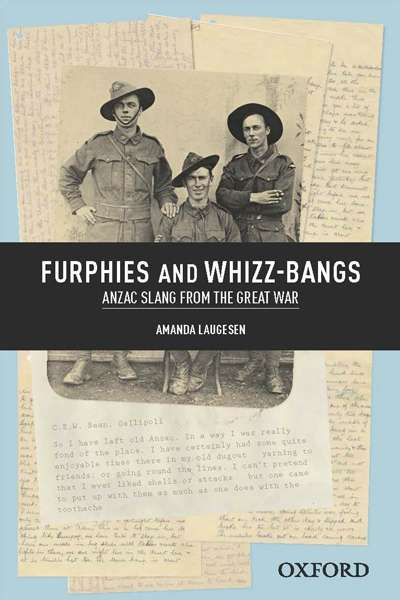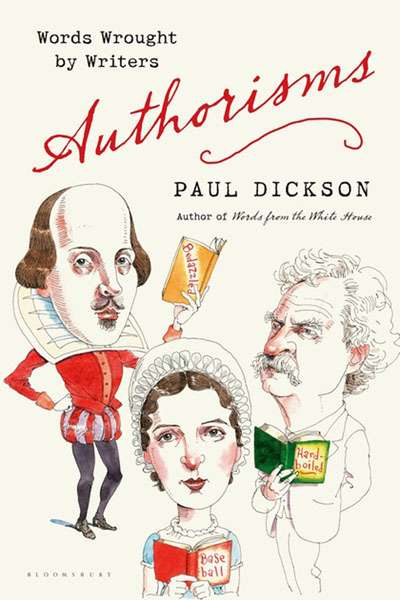Language Column
That’s the Way It Crumbles: The American conquest of English by Matthew Engel
Matthew Engel has written for many years in The Guardian and the Financial Times, on topics ranging from politics to sport, and between 1993 and 2007 he produced editions of Wisden Cricketers’ Almanack. In this latest book he takes up the bat (or steps up to the plate) for British English. That’s the Way It Crumbles is a lament ...
... (read more)The Word Detective: A life in words, from Serendipity to Selfie by John Simpson
What does a lexicographer do? How do you become a lexicographer? What makes a good lexicographer? What is the difference between a ‘standard’ dictionary and a dictionary based on historical principles? How do you reinvent the Oxford English Dictionary so that it has a secure place in an online modern publishing world? These are among the questions explo ...
The Making of the Oxford English Dictionary by Peter Gilliver
There have been popular accounts of the making of the Oxford English Dictionary, especially Simon Winchester’s The Surgeon of Crowthorne (1998) and The Meaning of Everything (2003), and there have been more scholarly accounts, such as ...
... (read more)The Australian National Dictionary – the second edition of which has just been published – is based on historical principles and modelled on the large Oxford ...
... (read more)The Utility of Meaning: What Words Mean and Why by N.J. Enfield
Words and their meanings, more than any other aspects of language, hold a special fascination for people. Perhaps it is because, unlike these other features (which are set down during childhood), they continue to be acquired throughout one's lifetime. Words and their meanings are also intimately tied to the life and culture of speakers, and all sorts of perspectives ...
The Western Isles arch across the north-west coast of Scotland, sheltering the mainland from the North Sea’s fury. In summer there are few places more magical than these islands, which Seton Gordon once described as standing ‘on the rim of the material earth’ looking west to the immortal realm of Tir nan Og.
On the northern islands, granite and gneiss ...
Furphies and Whizz-Bangs: ANZAC slang from the Great War by Amanda Laugesen
The Great War produced its own idiom and slang. Many of the new words and phrases created during the long conflict, such as ‘tank’ and ‘barrage’, became part of standard English, although often with a different nuance of meaning.
The recording of Australian soldier slang was seen as important at the end of the war. It was recognised as being integral to the unique character of the Australian soldier and linked to the official war historian C.E.W. Bean’s characterisation of the Australian soldier as the bronzed bushman and an outstanding fighter with a disdain for authority. In 1919, W.H. Downing published Digger Dialects; he described the slang he had collected as ‘a by-product of the collective imagination of the A.I.F.’. In the early 1920s, A.G. Pretty, chief librarian at the Australian War Museum, later the Australian War Memorial, compiled a ‘Glossary of Slang and Peculiar Terms in Use in the A.I.F.’. Amanda Laugesen (now the director of the Australian National Dictionary Centre at the Australian National University) has previously edited an online version of Pretty’s ‘Glossary’ and in 2005 published Diggerspeak: The Language of Australians at War.
... (read more)American Paul Dickson has written many books on aspects of language, including Words from the White House (2013). He also claims to have invented some fifty words, although he admits that only two of these have any real chance of becoming ‘household words’: word word ‘a word that is repeated to distinguish it from a seemingly identical word or name’, as in ‘a book book to distinguish the prior work in question from an e-book’; and demonym ‘a name commonly given to the residents of a place or a people’ (as Briton or Liverpudlian). In his new book, Dickson includes these two words, along with a solid collection of English neologisms from mainly English authors from Chaucer to the present. Such is the prerogative of the author of a book on authorisms.
... (read more)There was a recent flurry of Australian media interest in the wake of the publication of a new edition of the Dictionary of Contemporary Slang, edited by Tony Thorne. Thorne only added a small number of new Australian slang termsto the new edition: ‘ort’, buttocks; ‘tockley’, penis; and ‘unit’, defined as a bogan. The apparent lack of new Australian slang terms was a cause of some anxiety: did it indicate we were losing our famed linguistic inventiveness? Was it a sign of our maturing as a nation? Or did it mean that Americanisms had finally taken over our language?
... (read more)In a 2011 lecture, David Crystal, a leading authority on the English language, spoke about the possibility of a ‘super-dictionary’ of English – a dictionary that would include every word in global English. Such a dictionary was, he acknowledged, a ‘crazy, stupid idea’, but an idea that seemed somehow possible in the electronic age, where the constraints of print no longer apply.
Dictionaries in the mould of Samuel Johnson’s A Dictionary of the English Language (1755) and James Murray’s Oxford English Dictionary (OED, first volume 1884) have shaped our understanding of what a dictionary is. Dictionaries of the twentieth century, from Webster’s to the Chambers Dictionary to the Macquarie Dictionary to the Australian Oxford Dictionary, have followed in their footsteps.
... (read more)

